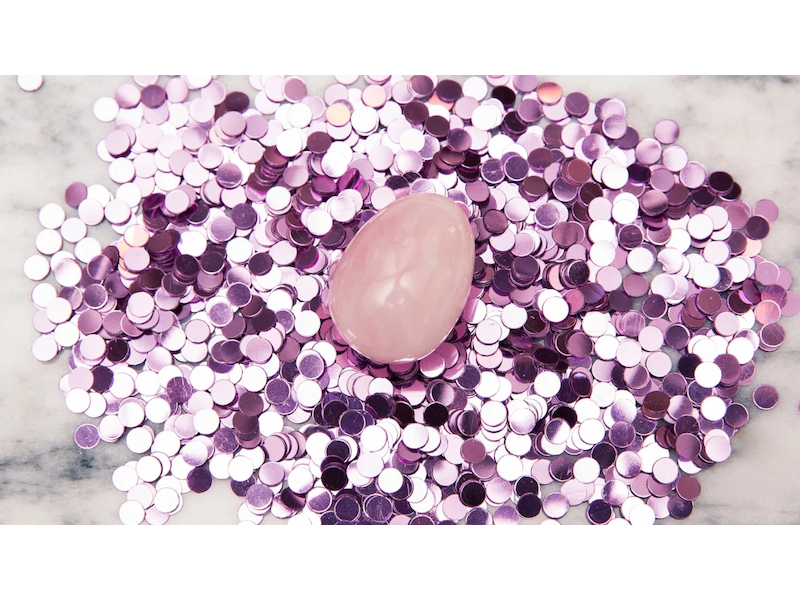Yoni eggs, aka smooth, egg-shaped stones meant to be inserted into the vagina for kegel training, first became popular when Goop, Gwyneth Paltrow’s site, began selling them around 2017. A yoni egg is a smooth stone that’s been polished enough to be non-porous and is egg-shaped for insertion into your vagina. The word “yoni” is Sanskrit and means “womb”, although modern use usually refers to yoni as the vulva or vagina. The weight of the egg is meant to act as a kegel ball. Kegels can be beneficial for lifting and toning your pelvic floor.
Usually made from jade, but also from other materials such as clear quartz, amethyst, and banded onyx, the material of the eggs is also meant to work as a healing crystal, depending on the kind of stone your egg is. Rose quartz yoni eggs are all about love; love for your body, love for your partner, and love for your spirit and life. Nephrite jade emits protective energy, said to be one of devotion. Many women choose to enhance their yoni egg practice with their prayer practices, yogic, affirmation, meditation practices, and/or sacred baths.
Do yoni eggs really work? In the same way that inserting anything up your vagina and using it as a free weight would tone your pelvic muscles, yes it does. MD of Medzino, Kimberly Langdon, said: “Anything that strengthens the pelvic floor can reduce urinary incontinence and improve sexual pleasure and response.”
The benefits of a strong pelvic floor are:
- more intense orgasm
- stronger internal grip during penetrative sex
- reduced symptoms of incontinence
- reducing the risk of or treating uterine prolapse
- reducing the risk of leakage and promoting healing after vaginal childbirth
However, there hasn’t been any scientific research on the risks or benefits associated with using yoni eggs for crystal healing. “There is no data to support any of the health claims made concerning their use,” said Felice Gersh, MD, an OB-GYN at the Integrative Medical Group of Irvine. There are also side effects of yoni eggs which include:
- Muscle strain, due to the vagina constantly contracting.
- Vaginismus, a condition in which muscles involuntarily contract when something is inserted into the vagina, causing extreme pain.
- Increased vaginal or bladder infections, as the porous material absorbs bacteria
Sellers of yoni eggs claim have a rich history of use, that they are “an ancient Chinese secret”, but in fact they are not. There’s absolutely no evidence that yoni eggs were ever used vaginally in ancient Chinese culture. “I am a gynecologist originally trained in China and I can testify that this [claim] is absolutely false,” says Dr. Renjie Chang, OB-GYN, and founder of NeuEve, a sexual health startup. “No Chinese medicine books or historical records ever mentioned this.”
There are other, proven methods of treatment for many of the issues yoni eggs claim to tackle, such as strengthening the pelvic floor muscles. Smartballs from Fun Factory are a good alternative, as these are nonporous and have a sturdy silicone cord that helps with removal.
However, if you’re a believer in crystal healing and want to try a yoni egg, you must be careful. You should keep it clean (with warm soap and water) and dry, and use lubricant with each use. But most gems have surface defects and can be porous, which means that bacteria can get in and stay in the egg, even after it’s cleaned. Some companies sell glass yoni eggs. Glass is a body-safe, nonporous material, which makes these a somewhat safer alternative to traditional stone eggs.
Source

Boitumelo Masihleho is a South African digital content creator. She graduated with a Bachelor of Arts from Rhodes University in Journalism and Media Studies and Politics and International Studies. She’s an experienced multimedia journalist who is committed to writing balanced, informative and interesting stories on a number of topics. Boitumelo has her own YouTube channel where she shares her love for affordable beauty and lifestyle content.





